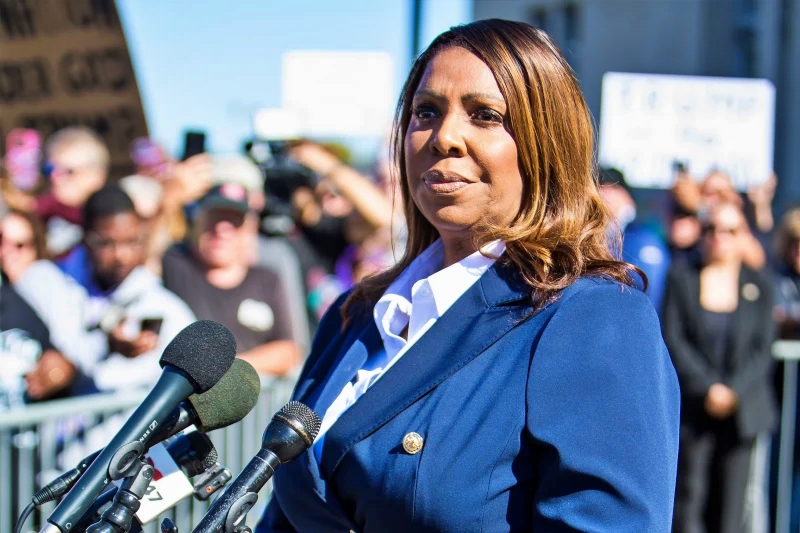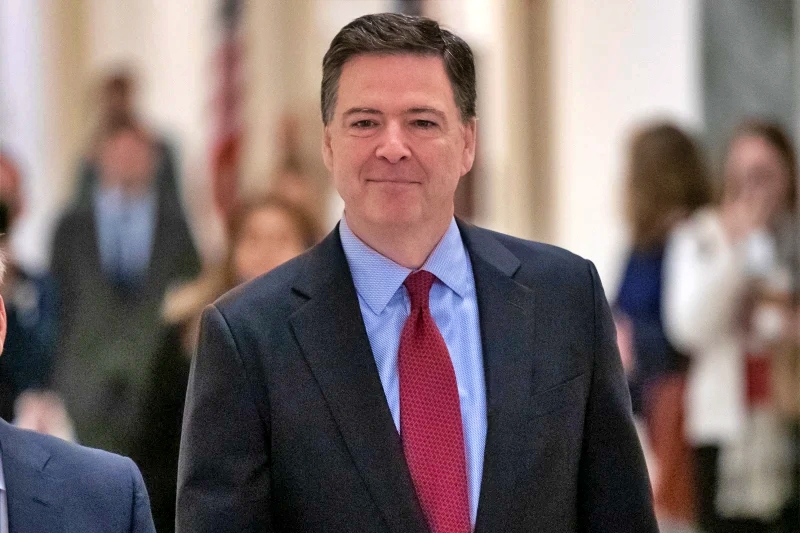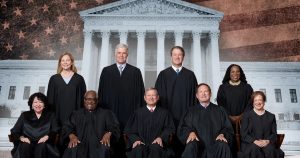Gambiaj.com – (Washington, D.C.) – A federal judge on Monday dismissed the criminal cases against former FBI Director James Comey and New York Attorney General Letitia James, ruling that the prosecutor who brought the charges at President Donald Trump’s urging was unlawfully appointed.
U.S. District Judge Cameron McGowan Currie found that Lindsey Halligan, a former White House aide named interim U.S. attorney for the Eastern District of Virginia, had been installed without legal authority, rendering the indictments invalid.
In a pair of sharply worded rulings, Currie said “all actions flowing from Ms. Halligan’s defective appointment,” including the securing and signing of indictments, “were unlawful exercises of executive power and are hereby set aside.”
The decisions halt two high-profile prosecutions that had targeted longtime critics of President Trump and amount to a stinging rebuke of what the judge suggested was an unprecedented and improper effort to place a loyal and inexperienced prosecutor in charge of the cases.
White House Vows Appeal
A White House spokeswoman said the rulings would “not be the final word,” while Attorney General Pam Bondi pledged an “immediate appeal.” The judge dismissed the cases without prejudice, meaning prosecutors could attempt to refile charges.

Halligan, who had no prior prosecutorial experience, was appointed after veteran interim U.S. Attorney Erik Siebert resigned in September following pressure from the Trump administration to pursue charges against Comey and James.
Trump publicly demanded Siebert’s removal and, the next night, declared Halligan his pick, urging Bondi to “take action” against his political opponents.
Comey was indicted three days after Halligan was sworn in. James was charged two weeks later.
Defense Lawyers: No Authority to Appoint
Under federal law, attorneys general may appoint interim U.S. attorneys for up to 120 days. After that period expires, the authority to appoint passes to district judges. Currie ruled that the 120-day period linked to Siebert’s appointment expired in May, months before Halligan took office.
“The Attorney General’s attempt to install Ms. Halligan … was invalid,” Currie wrote, adding that Halligan had “unlawfully” served since September 22.
The Justice Department had attempted to preserve the indictments by later naming Halligan a “Special Attorney,” but Currie rejected that move as legally insufficient, warning that accepting such a workaround would allow “any private citizen off the street” to seek indictments with retroactive authorization.
Comey and James Claim Vindication
Comey, who pleaded not guilty to charges of making a false statement and obstructing Congress, said in a video statement he was “grateful that the court ended the case against me, which was a prosecution based on malevolence and incompetence.”
James, a Democrat who pleaded not guilty to mortgage fraud allegations, said she was “heartened by today’s victory” and vowed to remain “fearless in the face of these baseless charges.”
Both had long argued the prosecutions were retaliatory and emblematic of a politicized Justice Department under President Trump.
Potential Refiling of Uncertain and Longstanding Political Feuds
Although the dismissal leaves room for prosecutors to bring the charges again, time may already be a barrier. Comey was indicted just days before the five-year statute of limitations expired. His attorney, Patrick Fitzgerald, said the ruling confirms the indictment was void and the statute has now run out.
The judge’s ruling arrives amid broader scrutiny of interim U.S. attorney appointments in multiple states. But Currie drew a distinction in this case, noting that Halligan alone had presented evidence to grand juries.
Comey has been one of President Trump’s most prominent adversaries since Trump fired him in 2017 while Comey oversaw the FBI’s Russia investigation. James has also faced sustained attacks from Trump, particularly after securing a major civil fraud judgment against him, a ruling later upheld, though its accompanying financial penalty was overturned on appeal.
For now, the cases against both officials are over. Whether the Justice Department will, or can, try again remains an open question.










